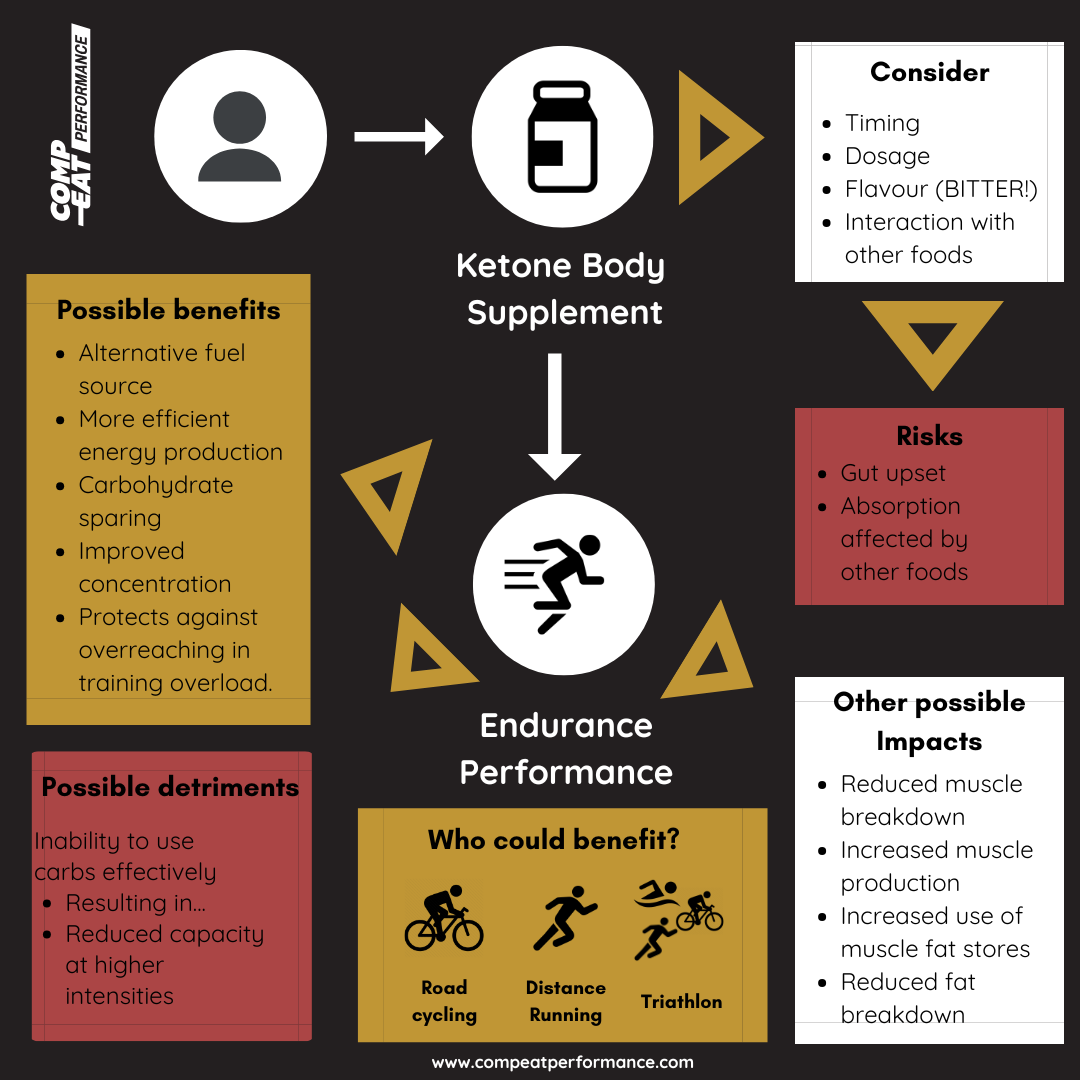
You’ve likely heard of the keto (or HFLC) diet, popular in both general and athletic populations. But if you’re an athlete, it’s important to know how this diet impacts your efficiency. Research shows keto can reduce exercise economy, making your body less efficient during activity. Wondering if keto suits your performance goals? Keep reading to find out how it affects your energy and efficiency.
To understand how ketone supplementation works, we first need to explore what happens when someone follows a low-carb or keto diet.
Without carbohydrates in the diet, the body must produce its own fuel, known as ketones, by breaking down fatty acids in the liver. Ketones are crucial because they are the only other fuel source used by the brain.
This is where exogenous (external) ketone supplementation, through ketone salts and esters, comes into play. The question is: can we increase ketone levels without strictly following a high-fat, low-carb diet and experiencing the associated performance drawbacks?
How are ketone esters used?
Ketone esters (not to be confused with ketone salts, which are more readily available) are broken down in the gut and absorbed into the blood, reaching peak concentrations within 1-2 hours.
The body’s use of these ketones depends on the tissue (brain vs. muscle) and the athlete’s training status. Endurance athletes tend to have a greater capacity to oxidise ketones, so better-trained athletes may utilise them more effectively.
If an athlete already has high levels of circulating ketones, such as from a ketogenic diet, muscle saturation occurs, and absorption is significantly reduced.
How could supplementing ketones benefit performance?
Ketone supplementation may provide a more practical way for athletes to induce ketosis for a positive effect on performance. This may be due to:
- Their use as an alternative fuel source
- Decreases in fatigue
- Improved mental function.
- Unfortunately, data from performance studies are currently extremely limited.
In terms of endurance performance, ketone bodies can be used as a fuel source for skeletal muscle. Theoretically, this means that muscle carbohydrate stores are spared for higher intensity efforts (more on this topic here).
This could also work the other way: preventing carbohydrate use at lower intensities may impair its use at higher intensities, lowering performance.
As a result, ketone supplementation is likely irrelevant for most sports that involve high-intensity efforts or short durations. However, in sports like triathlon, road cycling, or endurance running, carbohydrate availability can limit performance, making glycogen sparing potentially beneficial.
Other Things to Consider
- COST! The real deal – Ketone Esters – have only just hit the market, and per dose, they are EXPENSIVE! This will really limit when you can use them and whether you can afford to trial their use in training.
- Be wary of Ketone Salts. These are often sold by Multi-Level Marketing companies and have been shown not to raise blood ketone levels high enough to induce a performance benefit. There are some benefits still, but you may not need to follow a keto diet to get them – contrary to what the main companies selling them claim!
- Be cautious of imposters – there are plenty of products out there claiming to be ketone-inducing that are clearly not once you look through the ingredients!
- Seek advice regarding timing and dosage for important endurance events. Even longer events require intermittent stages of increased effort (e.g. hill efforts or sprints). This should be considered prior to supplementation.
- It is important to consider your own individual tolerance of ketone bodies, both close to an event and during it. Issues can include gut tolerance, poor tolerance of the bitter taste, and the larger amounts of fluid that need to be consumed with the ester.
- Absorption of ketones is affected by other nutrients – if taken incorrectly, this could compromise how you fuel for your event. Seek professional advice if unsure.
Summarising the Evidence:

While the keto diet might work for some, it’s not a one-size-fits-all solution for everyone—especially when it comes to optimising performance. If you’re feeling uncertain about how your nutrition choices align with your training or performance goals, it might be time to get expert support. Understanding what works best for your body is key to achieving both your health and athletic potential. Complete your Performance Profile to start a personalised journey towards feeling and performing at your best.


